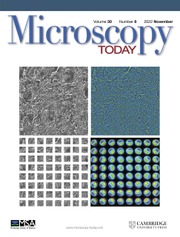Scientific society leaders often express concern about the difficulty of encouraging young professionals to regularly contribute to conferences, publications, and society activities. While it is true that these young people have many pressures placed upon them, it is also true that active participation in the scientific enterprise is useful for career advancement.
Several ideas have been offered to encourage young researchers to participate. Some societies have made a conference rule that each symposium must be co-chaired by a young person who shows promise. Some societies have a committee for young people so that there is a home for them in the society. The “meal with a mentor” concept is another idea. At the annual M&M conference, meeting awards are presented to students and post-doctoral researchers to defray the expense of meeting attendance; unfortunately, we do not keep track of which awardees continue to participate in the society.
How do we identify early career people who can step up to chair symposia and take leadership positions in their particular discipline? Perhaps a different question should be asked: Where are the mentors who could encourage these young investigators and recommend them for leadership positions?
Often a mentor is a colleague who knows the young person at his or her place of employment. A mentor also can be someone who hears an excellent talk and does more than just applaud; he or she makes a point of meeting the speaker and discussing the person’s research. Perhaps the mentor participates in a spirited discussion at the young person’s poster. While these interactions may be memorable and helpful, it may be more beneficial for the mentor to put in a good word with the symposium chair or the next program chair. I believe it is especially important to encourage women in this way.
Mentoring can also be important for mid-career professionals. This is a point in a career when opportunities arise for volunteering outside one’s employment, and a mentor can be helpful in deciding how to find time to give back to the community without losing track of one’s career advancement. Of course, mid-career is when a professional should begin to develop one’s own mentoring skills.
Personally, mentors were quite important to my career. I can identify at least two senior researchers who recommended me for important career-enhancing positions. Of course, that was only half the bargain; I had to complete those tasks with competence and enthusiasm for my career to be positively affected.
Here is my point. It would be wonderful if more senior investigators would serve as mentors for the young people they encounter, but perhaps this natural mechanism does not work as well as it should. What can societies do to encourage mentorship?


